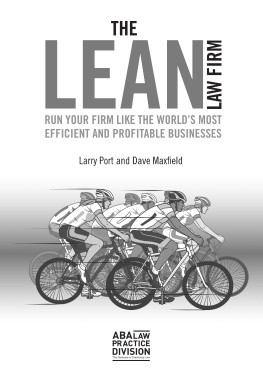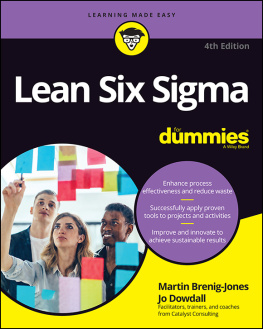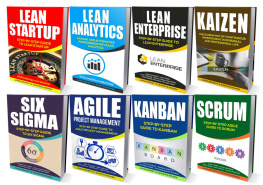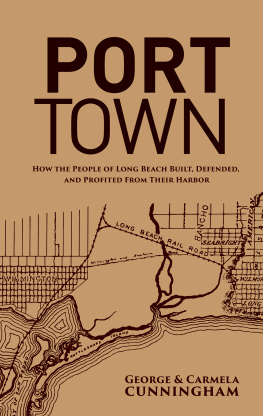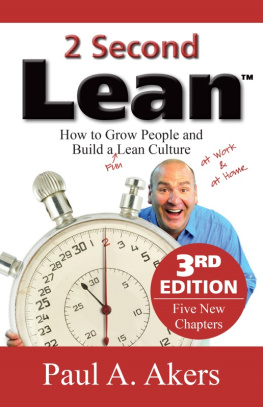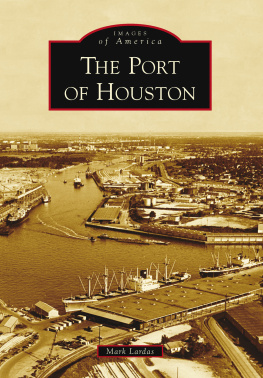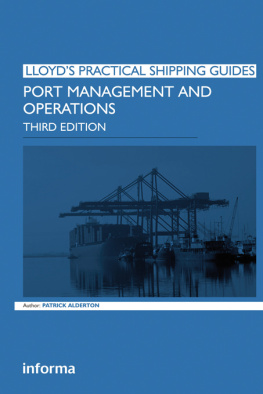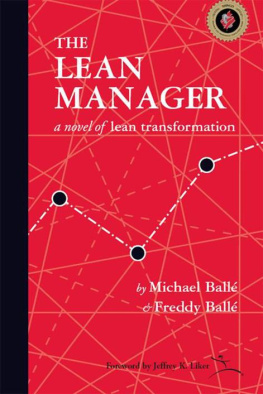Larry Port - The Lean Law Firm
Here you can read online Larry Port - The Lean Law Firm full text of the book (entire story) in english for free. Download pdf and epub, get meaning, cover and reviews about this ebook. year: 2018, publisher: American Bar Association, genre: Business. Description of the work, (preface) as well as reviews are available. Best literature library LitArk.com created for fans of good reading and offers a wide selection of genres:
Romance novel
Science fiction
Adventure
Detective
Science
History
Home and family
Prose
Art
Politics
Computer
Non-fiction
Religion
Business
Children
Humor
Choose a favorite category and find really read worthwhile books. Enjoy immersion in the world of imagination, feel the emotions of the characters or learn something new for yourself, make an fascinating discovery.
- Book:The Lean Law Firm
- Author:
- Publisher:American Bar Association
- Genre:
- Year:2018
- Rating:5 / 5
- Favourites:Add to favourites
- Your mark:
- 100
- 1
- 2
- 3
- 4
- 5
The Lean Law Firm: summary, description and annotation
We offer to read an annotation, description, summary or preface (depends on what the author of the book "The Lean Law Firm" wrote himself). If you haven't found the necessary information about the book — write in the comments, we will try to find it.
The Lean Law Firm — read online for free the complete book (whole text) full work
Below is the text of the book, divided by pages. System saving the place of the last page read, allows you to conveniently read the book "The Lean Law Firm" online for free, without having to search again every time where you left off. Put a bookmark, and you can go to the page where you finished reading at any time.
Font size:
Interval:
Bookmark:


Cover design by Lachina Publishing Services, Inc.
The materials contained herein represent the opinions of the authors and/ or the editors, and should not be construed to be the views or opinions of the law firms or companies with whom such persons are in partnership with, associated with, or employed by, nor of the American Bar Association or the Law Practice Section unless adopted pursuant to the bylaws of the Association.
Nothing contained in this book is to be considered as the rendering of legal advice for specific cases, and readers are responsible for obtaining such advice from their own legal counsel. This book is intended for educational and informational purposes only.
2018 American Bar Association. All rights reserved.
No part of this publication may be reproduced, stored in a retrieval system, or transmitted in any form or by any means, electronic, mechanical, photocopying, recording, or otherwise, without the prior written permission of the publisher. For permission contact the ABA Copyrights & Contracts Department, .
Library of Congress Cataloging-in-Publication Data
Names: Port, Larry, author. | Maxfield, Dave, author. | American Bar Association. Law Practice Division, sponsoring body.
Title: The lean law firm : run your firm like the worlds most efficient and productive businesses / by Larry Port and Dave Maxfield.
Description: First edition. | Chicago : American Bar Association, 2018.
Identifiers: LCCN 2018001110 | ISBN 9781641051392 (epub)
Subjects: LCSH: Law firmsUnited States.
Classification: LCC KF318 .P67 2018 | DDC 340.068/4dc23
LC record available at https://lccn.loc.gov/2018001110
Discounts are available for books ordered in bulk. Special consideration is given to state bars, CLE programs, and other bar-related organizations. Inquire at Book Publishing, ABA Publishing, American Bar Association, 321 N. Clark Street, Chicago, Illinois 60654-7598.
www.ShopABA.org
Contents
Foreword
We may be in the 21st century, but for many law firms, its 1911.
That was the year that Frederick Winslow Taylor published his seminal work The Principles of Scientific Management, marking the dawn of a new age of scientific business management. It was around this time that visionaries like Henry Ford used these new management principles to accomplish feats of manufacturing never before seen. Manufacturing changed forever. But not so much for law firms. Even today, more than 100 years later, most law firms are operating as if they were in that time when the Titanic was being assembled in a Belfast shipyard and two world wars were still in the future.
Let me offer a bit more insight into this wild claim. When I first started observing the business side of law firms through my work with my software company Rocket Matter, I was struck by the reactionary nature of work in a law firm. It seemed as if the lawyers I observed were in a World War I trench with artillery shells constantly flying overhead. A request would come in from a client, a judge would throw a figurative grenade, or opposing counsel would file a motion requiring an immediate response. The lawyers and staff lurched from crisis to crisis, putting out fires and reacting to one emergency after another. More than 100 years after manufacturing started to really harness the power of systems, most of these lessons had yet to be translated for the legal profession.
Life in a law firm does not have to be utter chaos. As unique as law firms believe themselves to be, they are not unlike most of the business world. Most businesses face complex, long-term projects with uncertain outcomes. As with legal work, errors can result in disasters.
There has to be a better way. Lawyers and their staff deserve better lives, and their clients deserve better service.
Since the day I started my legal technology software company, Ive believed that some of the techniques we use to run our operation could apply to the law firms we served. After all, if we in softwarea much younger field than lawcan leverage techniques from manufacturing industries, why cant a law firm? Isnt law a knowledge-based field like software?
I began my quest to spread the word about improved business processes for law firms, publishing e-books, speaking at continuing legal education (CLE) events around the country, and hosting countless webinars. Along the way I met other people who made the same observation I did and had pursued similar lines of inquiry. One of them was Dave Maxfield, my coauthor, who is a living embodiment of the Lean lawyer. Another, Nashville-based lawyer John McCormack, studies industrial engineering at Vanderbilt University. It was John who remarked to me that law firms were, from a managerial aspect, still stuck in 1911.
When Taylor wrote his seminal work The Principles of Scientific Management in that year, he exposed the great loss which the whole country is suffering through inefficiency in almost all of our daily acts. As a remedy, he believed in systematic management, rather than in searching for some unusual or extraordinary man.
In bringing science to the management of labor, Taylor sought to wring efficiencies from the American workforce. He sought to reduce process, and he maintained that it was up to management to identify the best method to complete each task. Today, Taylor is widely considered to be the father of the field of industrial engineering, and industrial management has never been the same.
As my friend John McCormack pointed out in commenting that most law firms exist in a pre-1911 world, most law firms have little to no awareness of process. Always running at 100 miles per hour, most firms do not step back to reexamine how they do things and what processes theyve adopted over time. Instead, they do what theyve always done: perform the client work, react to judges and opposing counsel, and hope for the best. Also, perhaps more than any other business, law firms can become overly reliant on the unusual or extraordinary man that Taylor referred to. A firm can be driven by the herculean capabilities of one or a few extraordinary lawyers. The fates of firms depend on these individuals.
Smaller law firms, where the lawyer must (in addition to practicing) wear the marketing and manager hats, suffer acutely from these problems. Lawyers are not taught how to run a business in law school, and theres enough to worry about with following the rules of civil procedure and knowing the law itself.
Heres the good news: The science of management has transitioned from the manufacturing world into knowledge and service industries of all kindsincluding your law firm. Thats what this book is all about. We will introduce you to methods that will increase your income, grow your law firm (if thats what you want), and allow you to live a less stressful life. We will be taking many of our cues from industrial organizations like Toyota, whose Toyota Production System (TPS) is more generically known as Lean. We also owe a huge debt (as do many modern businesses) to the groundbreaking work of the late Dr. Eliyahu Goldratt, whose Theory of Constraints (as presented in his book The Goal and elsewhere) we will reference repeatedly.
Some lawyers (and other business owners) hear the term Lean and equate it with the standard definition in the lexicon: being thin with no extra fat. This is a mistake. Becoming a Lean law firm does not have to do with a bare-bones operation or going through cost-cutting exercises. Those things may arise as a matter of consequence from Lean practices, but they do not constitute the practice.
Next pageFont size:
Interval:
Bookmark:
Similar books «The Lean Law Firm»
Look at similar books to The Lean Law Firm. We have selected literature similar in name and meaning in the hope of providing readers with more options to find new, interesting, not yet read works.
Discussion, reviews of the book The Lean Law Firm and just readers' own opinions. Leave your comments, write what you think about the work, its meaning or the main characters. Specify what exactly you liked and what you didn't like, and why you think so.

